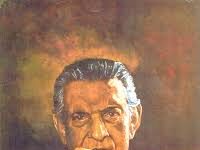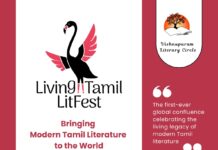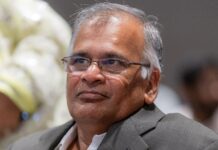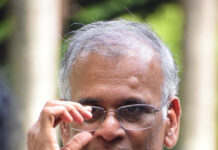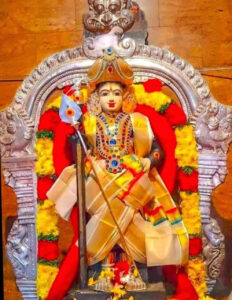
Is there such a thing as ‘Hindu Religion’?’
Is there such a thing as ‘Hindu Religion’?– 2
Is there such a thing as “Hindu Religion”?-3
Jeyamohan,
Greetings. I read your article ‘Is there a religion called Hinduism?”.
Two kinds of religions:
1) Natural Religions: Religions that have evolved naturally over the course of history.
2) Prophetic Religions : Religions that originated from a Prophet or messenger.
This article presented a very clear picture about religions.
Hinduism includes the worship of a Guru as well. Hence, a Hindu is not wrong in being a follower of a Prophet or a sage, isn’t it so?
We see common Hindus worshipping at Velankanni Church and the Dargah at Nagoor.
Without a real understanding of religion, the use of hatred against other religions for political needs has been on the rise recently.
You state that ‘The religion as defined by Europeans is a relatively modern concept’. Similarly, I think we in India are moving towards the European notion of a Nation-State. But Europeans themselves have freed themselves from the concept of a nation-state towards the European Union. Maybe a Global Union could emerge in the future.
Please let me know your thoughts about the concept of a nation-state.
Thanks
With regards,
Santhanam
***
Dear Santhanam,
I think I have answered this question in several ways on different occasions in much detail. But let me state it again as part of this discussion.
There are two aspects of the Hindu religion that serve to accept other philosophies and forms of worship. One is ‘Brahmam’, a concept of divinity that exists as a philosophical entity. The second is the worship of Gurus or sagely teachers.
At the core of the Hindu tradition lives ‘Brahmam’, formless, beyond description, a conception of divinity that defeats any attempt at definition. It exists as this universe, as the forms of the universe and its inner essence. It doesn’t belong to any religion, any Prophet or Sage, any geography or to any society. It is something that every Prophet or Sage perceives as the essence of existence. Common people would have felt it at least for an instant, at some point in their lives.
Therefore, all philosophies that describe the cosmic essence are but realizations of Brahmam. All divinities are forms of Brahmam. The Chandogya Upanishad says just as all rivers finally flow into the ocean, all of knowledge is but knowledge of the Brahmam.
Hence it is not a sin for a Hindu to accept any divinity such as Christ or Allah. There are no injunctions or exclusions. There is no central authority to pass such injunctions. There is abundant textual evidence that those who were Hindus have often visited Buddhist and Jain temples in our history (e.g. Silappathikaram)
A person who perceives himself as a Hindu may go to a Christian shrine. Or a mosque. I have been visiting and worshiping in such places for several years. In gurukulas that follow the Vedantic tradition, such as the Narayana Gurukulam and the Ramakrishna Math, prayers of all religions are offered.
There are several traditions (sampradayas) within what we call the Hindu religion, such as the Shri Sampradaya of the Vaishnavaites. They adhere to their tradition’s customs and prohibitions. They have their chief gurus called Acharyas and their own administrative setup. Their path is separate within this religion. But there won’t be even half a percent of Hindus who strictly practice such a tradition within the Hindu religion.
If all knowledge is nothing but Brahmam, then all sages are verily philosophers. Therefore the worship of a Guru is paramount to Hindus. This is the manner in which Kabir and Shirdi Saibaba became Gurus. Therefore a Hindu may worship Sufis. Sometimes I visit a church of St. Xavier and sometimes, Sufi dargahs.
There has been central authority till date to control and punish these. The Hindu religion will start deteriorating when such an organization gets formed with edicts and injunctions. The concept of the ‘Other’ may be necessary in civil life, because that is the nature of humankind and it is difficult to avoid. But Hindus cannot reach the truth behind the Hindu religion without transcending it.
The real obstacle on the spiritual path of Hindus are the politicians who devise the duality of ‘Us vs Them’ and harvest the hatred that arises from it. The spiritual struggle that Hindus have to overcome at any cost is this schism and its attendant aversions.
But we cannot speak about this to the majority who are moving towards Hindu politics, nor can we speak about this to the asinine liberals who argue that all those who haven’t renounced Hinduism yet are essentially Hindutvaites. It is the second category that is sparing no effort today in converting Hindus into Hindutvaites.
My words reach only a few. It is distorted by the hatred spewed by these two fronts. I am stating this simply so that there will be a record that there was someone who relentlessly spoke thus.
*
Like the concept of religion, the concept of the modern nation is an European import. But we cannot have an intellectual discourse completely devoid of European thought. Much of the concepts that go around today have their origins in Europe.
There are only two things that we need to consider when use these concepts:
- The concepts and history that preceded the inception of the word should not be labeled with its current European meaning. For example, the word “religion” with its western meaning has been around for only three hundred years. It would be incorrect to designate as ‘religion’ in its current meaning, everything that went by the term matha for thousands of years here. That caution is important.
- While dealing with an European concept, we can discard its European historical background, philosophical underpinnings and consider only the meaning it has evolved for itself in the Indian context. That awareness would be enough. This is how we should approach the meanings of several technical terms such as religion, nation, God, and the individual.
With this basis, we can now use the term religion here. We can call it the Hindu religion. But not in its European meaning. Religion in the European sense is constituted by:
- Clearly defined Gods
- A compilation of core philosophies
- A sacred text or a collection of texts
- A central religious authority
- Well defined methods of worship and rituals
The organization that we call as Hindu religion none of the above. What we call as a religion today was merely a spiritual fabric that went by the name of ‘Dharma’ till yesterday. We should understand that there exist several paths of spirituality within it.
The same holds for the concept of a nation. I do not subscribe to the idea of ’Cultural nationalism’ that developed in Europe with its origins in the sixteenth century. I have been repeating this for the past thirty years. By culture, I include religion, language and race too.
Cultural nationalism confers inalienable rights over a geography to a certain set of people. It makes the rest a minority, renders them without a land of their own in all situations. That is nothing but fascism.
I do not believe that a nation is a ‘living’, organic entity. I do not consider that India can only exist as a whole, or that Tamilnadu can exist only as a whole. A nation is merely a setup that its residents create for themselves once they decide to be under a single administration.
The reason for their decision could be the opportunities yielded by that geography. It could be for historical reasons. Or economic reasons. But under that national setup, every element within it should be offered an opportunity to grow. No element should be oppressed and destroyed.
Why should India remain united? A historical reason exists for it, that I have been repeating for a long time. The country has seen an admixture of peoples over a thousand years of human migrations caused by trade and war. All kinds of people live in almost every part of India. There is a mixed population comprising peoples of different languages, ethnicities and religions.
Hence this country can only exist in its united form. Any secessionist tendency here can only cause destruction. Kashmir and the North-East are evidence of this fact in contemporary times. All secessionist leaders only possess arguments for narrow linguistic nationalism or ethnic nationalism. They are budding fascists.
But in case the Indian nation itself becomes a senseless fascist organization and develops a tendency to destroy its internal elements, I think it would be natural for it to be denounced.
Jeyamohan
Translated By Gokul

